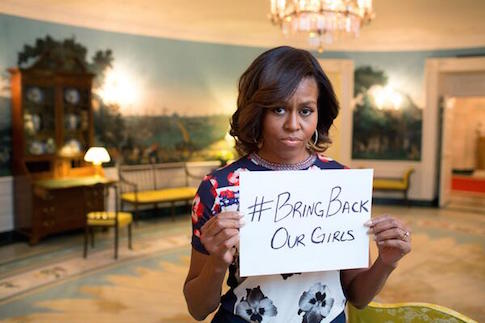Nigeria’s cancellation of a U.S. program that trained forces to counter the Boko Haram terrorist group could hamper efforts to combat the growing terrorist threat in Africa, analysts say.
The U.S. embassy in Nigeria announced on Monday that the training of a Nigerian Army battalion would cease at the request of the country’s government. Boko Haram, whose leaders have previously praised terrorist groups such as al Qaeda and the Islamic State (IS), continues to conduct daily attacks in Nigeria’s northern provinces and now reportedly holds territory "the size of Maryland."
"We regret premature termination of this training, as it was to be the first in a larger planned project that would have trained additional units with the goal of helping
the Nigerian Army build capacity to counter Boko Haram," the embassy said in a statement. "The U.S. government will continue other aspects of the extensive bilateral security relationship, as well as all other assistance programs."
The U.S. State Department confirmed the discontinuation of the program in an email to the Military Times and also said it regretted the "premature termination of this training."
Caitlin Poling, an expert on Africa and counterterrorism issues at the Foreign Policy Initiative (FPI), said in an interview that Nigeria’s decision to end the U.S. program was "very shortsighted" and that it would "absolutely" affect U.S. and regional efforts to fight Boko Haram.
"The [Nigerian] government has been our biggest obstacle in countering Boko Haram," she said. "We’ve been offering greater assistance than we currently have in place for years—they’ve been very reluctant to accept it."
Nigerian Ambassador Ade Adefuye said last month that "our people are not very happy with the content of America's support in the struggle against Boko Haram," citing a lack of intelligence sharing and U.S. weapons support. U.S. officials have raised concerns about alleged human rights abuses and corruption among Nigerian forces and are barred by law from training some military units.
Poling said Nigerian forces are notorious for mishandling military equipment and skimming money off the top of projects to line their own pockets. The military was reportedly unable to use Israeli surveillance drones to track more than 200 girls kidnapped by Boko Haram earlier this year because of poor maintenance after it bought them.
Boko Haram has recently conducted a series of attacks across northern Nigeria, including a bombing at a mosque on Friday that killed 120 people. A leader of the terrorist group endorsed IS head Abu Bakr al-Baghdadi earlier this year, as well as the leaders of al Qaeda and the Taliban.
While Poling said the United States has limited leverage over Nigeria due to its oil wealth, officials are still able to partner with other countries in the region and contribute to counterterrorism initiatives. Boko Haram has begun infiltrating neighboring countries such as Cameroon.
"Nigeria is surrounded by much more willing partners," she said. "However, they are much less wealthy partners."
"By trying to work with countries like Chad, Cameroon, and Niger, hopefully we can address problems on the fringes and get Nigeria to get its act together."
